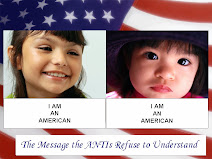 Washington (CNN) -- A hotly debated measure that offers a path to citizenship for illegal immigrants who came to the United States as children won approval Wednesday from the U.S. House. The 216-198 vote, mostly on partisan lines, sends the so-called DREAM Act to the Senate, where it was uncertain if supporters had the votes to overcome a certain Republican filibuster against it.
Washington (CNN) -- A hotly debated measure that offers a path to citizenship for illegal immigrants who came to the United States as children won approval Wednesday from the U.S. House. The 216-198 vote, mostly on partisan lines, sends the so-called DREAM Act to the Senate, where it was uncertain if supporters had the votes to overcome a certain Republican filibuster against it.The Development, Relief and Education for Alien Minors Act -- or DREAM -- would create a path to citizenship for immigrants who entered the United States illegally as children under the age of 16 and have lived in America for at least five years, obtained a high school or General Education Development diploma and demonstrated "good moral character," according to a White House fact sheet. Even then, only a six-year conditional status would be awarded, and before moving to the next phase, the students would need to meet additional requirements -- attending college or serving in the military for at least two years, and passing criminal background checks. Proponents, including President Barack Obama and Democratic leaders, say the bill offers legal standing to young people brought to the United States who have bettered themselves and served their new country, while opponents claim it is a form of amnesty for illegal immigrants.
Before Wednesday's House vote, Education Secretary Arne Duncan and Homeland Security Secretary Janet Napolitano joined congressional Democrats at a news conference to urge Congress to pass the bill. "These are not the individuals that are a threat to our public safety or our security," Napolitano said. "This is an area where ... our nation's immigration laws have not kept up with our nation's needs." The White House has touted the bill as a measure that will strengthen the nation's military and its economy.








No comments:
Post a Comment